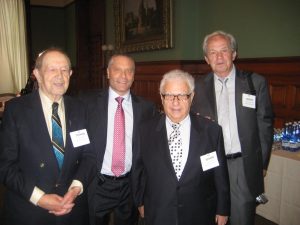After the deaths of Nadav and Avihu, the Torah states: “Moses spoke to Aaron, and to Elazar and Ithamar, his remaining sons.”
Rashi notes that they were “remaining” from death. He adds, “This teaches that they were supposed to die also for the sin of the (Golden) Calf.” They survived, though, due to Moses’ prayer.
Today, in the Jewish world, the word “survivor” connotes someone who went through the Holocaust. Survivors carry a special responsibility. They survived, others didn’t.
Moses was also a survivor, having been rescued from the Nile by Pharaoh’s daughter at a time when her father had decreed all newborn Jewish boys to be executed. He, too, had a responsibility to make the most of his life. This is the responsibility of all survivors.
But it is not just those who were in the concentration camps who were survivors. We must all consider ourselves survivors from the Holocaust. Some bore the brunt of it because they were in Europe, but all of us, as Jews, were included and all of us are “survivors.”
What difference does it make whether or not we are survivors? Being in this category should change our lives.
If a person survives a plane crash, it affects him deeply. “I survived for a reason. I have to do something with my life,” he thinks.
This is how every Jew who lives today must feel. They should think, “I am a survivor. It is not enough for me to be a passive, as Moses was when he was drawn from the water, but I must be an active leader, as Moses became.”
All of us who survived must never remain passive to the horrors of injustice, anti-Semitism and bigotry. We survived for a reason and it is up to all of us to make everyone’s lives better.






